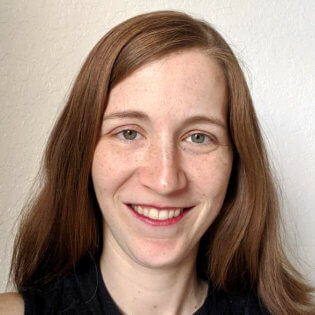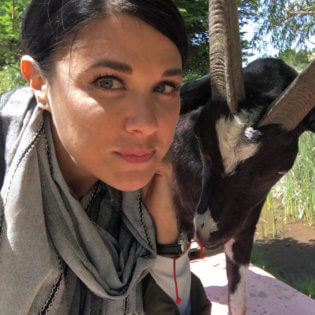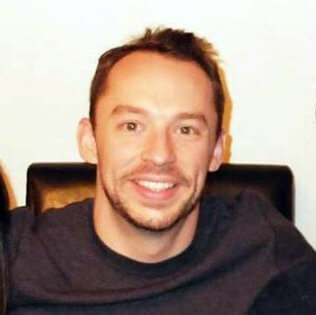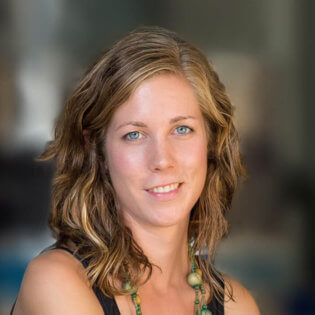
Roundtable: How Can Remote Organizations Effectively Hire and Onboard New Employees?
This is part one in a series of roundtable posts about remote organizational culture. You can find the second part of this series here.
Introduction
ACE considers healthy organizational culture to be a critical aspect of successful and effective charities. When we evaluate charities each year, this consideration informs our assessment of whether a charity has a healthy culture and a sustainable structure. In the past, we have written about the importance of healthy organizational culture and our methods for identifying charities with healthy cultures; we also posted a roundtable with advice for promoting healthy cultures.
In this part of the series, we ask advocates and experts at fully and partially distributed organizations to discuss what they consider to be the most important aspects of healthy remote culture, and to offer their advice for hiring and onboarding staff at a distance.
The following people contributed to this post:
- Stephanie Frankle, Culture and Engagement Specialist at The Humane League
- Julia Wise, Community Liaison at Centre for Effective Altruism
- Antonia Vitale, International Director of Operations at Animal Equality
- Baxter Bullock, Executive Director at Rethink Charity
- Leah Edgerton, Executive Director at Animal Charity Evaluators (previously Strategy and Internationalization Manager at ProVeg International)
We think that each of our contributors brings a unique perspective to the topic of remote organizational culture. For example, Frankle has been part of The Humane League (THL) for five and a half years and has supported and maintained THL’s fully-remote culture as they have grown in size from a staff of 10 to about 100. Wise’s work is informed by her background in social work; she is now part of a small remote Community Health team as a point person for the effective altruism (EA) community where she helps local and online groups support their members. Vitale supports employees and coordinates culture across Animal Equality’s unique organizational structure with networked offices and several remote employees in seven countries. Bullock directs Rethink Charity’s fully-remote team based in Vancouver; he has also managed his team while working remotely from Colombia. Finally, ACE’s own Executive Director Leah Edgerton shares her perspective from working at ProVeg where she ran a partially-remote team from the Berlin office, as well as her current experience managing ACE’s entirely remote team.
Please feel free to discuss our contributors’ thoughts—and to share your own—in the comments!
Stephanie Frankle

Culture and Engagement Specialist, The Humane League
Stephanie Frankle is the Culture and Engagement Specialist of The Humane League. Frankle has been at The Humane League for five and a half years now and has helped THL’s culture adjust to the growth of their fully-remote team from ten to almost one hundred staff members. She started in direct outreach doing grassroots organizing for two and a half years before she began overseeing THL’s campus outreach program. She then created her new role of Culture and Engagement Specialist by proposing it to her manager and writing her own job description.
Communicate transparently, trust, and lead by example
As THL has grown, we make sure that people are kept in the loop about as much as possible. We also aspire to have transparency in our communication—transparency both about what’s going well, what’s not, and what we’re working on. Trust is another important aspect. Staff should both trust each other and trust that our leadership really does have our best interests at heart. Leadership can set a good example by taking time off, having a healthy work-life balance, and empowering other people to do the same.
Hire for culture add and mission alignment
When hiring new employees, we like to think about who is going to be a culture add, rather than culture fit. One of our core values is being inclusive, so we want to work on widening the movement. We’re wondering now and still learning how we can create space for people who don’t quite fit the conventional mold but who might still be really wonderful assets to the movement. Things that we’re looking for in terms of culture add are people who are aligned with our mission. It creates this feeling of being in it together and working towards the same end goal.
At THL, we have six core values that we look for when hiring new team members. We look for people who are: collaborative, inclusive, nimble, relentless, innovative, and effective. People who are collaborative and good at being team players—they want to support each other and other organizations. People who are inclusive have this supportive and welcoming demeanor and want to lift other people up. Nimble, relentless, innovative, and effective are all about being driven and being able to push forward to get the job done and adapt to change easily.
Determining if a candidate aligns with those values is always a challenge of hiring. You can only get so far with interviews, so we aim to maximize by doing multiple interviews and having a diverse panel of people conducting them. The interviewers will include people within that department who the candidate will be working with directly, as well as people with different perspectives and experiences.
Onboard new employees with a culture orientation and a “training passport”
One of the first things new staff members do during their onboarding process is a culture and engagement orientation, which involves an hour-long interactive discussion about our cultural norms, our core values, the challenges of remote work and ways to mitigate those, burnout and self-care, and opportunities for connection. In addition, the “training passport” involves different orientation courses, including talking to different department heads and learning about each department, how they interact, and how the new hires’ job will interact with each department. We space it out so that all this new information is not too overwhelming.
Julia Wise

Community Liaison, Centre for Effective Altruism
Julia Wise is the Community Liaison at the Centre for Effective Altruism (CEA) and works in Boston, Massachusetts. Julia is also the President of Giving What We Can and the author of the blog Giving Gladly. Wise’s training is in sociology and social work, and she previously spent three years as a mental health worker.
Encourage open lines of communication and informal discussion
A key aspect of healthy remote work culture is that people need to feel they have a good way of getting in touch with their co-workers and supervisors if they have questions about their projects or other work-related matters. There should be some equivalent to walking over to a co-worker’s desk, as you would in person. Some people will put up a Slack status to signal they are in deep work. You expect that if you ask them a question during the day, they might only get back to you at the end of the day.
Another key aspect is having places for informal discussions, which would normally happen around the lunch table in person. To foster this type of informal culture, we have different channels in our Slack, including one called “good things,” where you can discuss the good things that have happened recently at work or in your personal life. There are other channels as well, including an exercise channel to keep each other accountable for the exercise you plan to do during a given week, and one focused on mindfulness and meditation. These kinds of channels, where you have ways to connect with each other personally, have been really helpful in reminding us that our co-workers are real people, not just names on a screen.
Distinguish between culture add and culture fit when hiring
It’s sometimes easy to mix up culture fit with homogeneity. Some companies or organizations use culture fit to ask “Who is like us in superficial ways?” and I think it’s really important not to do that. One idea is that of culture add—searching not just for someone who matches the existing culture but someone who can enrich the existing culture. I think it’s a diversity and inclusion issue as well. Giving attention and offering flexibility to people with different health and/or family needs, interests, and lifestyles can be important so that everyone can fully participate. For example, in a lot of in-person offices, if you are a parent who needs to leave early to pick up your child, it can be awkward, even if you’re making up the hours by coming in earlier than other people.
In general, I would like to see effective altruism organizations thinking more about how we can be enriched by people with diverse professional backgrounds. For example, we have a staff member who was a captain in the army, and he has presented on how he was trained to think about strategy in a military context, which has been a great perspective to add to our team. We also had a staff member who had been an intensive care unit nurse, and she had a different perspective on triage and prioritization.
The key thing is that new hires should be really excited about our mission. However, besides that, I wouldn’t want to get too narrow about what boxes you must tick to be a culture fit.
Onboard in person to build rapport with new team members
I was on a one-person “team” for a long time until earlier this year, when someone joined my team. She and I are both remote, but she was free to travel at the beginning of the year so she traveled up to Boston and we spent a week working together in person. Bringing a second person onto my team was helpful because not only could we sync up on work matters but we could also have face-to-face social time together. We were able to know each other as people. We’ve worked remotely since then, but I think that it was a great way to launch our relationship.
Antonia Vitale

International Director of Operations at Animal Equality
Antonia Vitale is the International Director of Operations of Animal Equality. Previously, Vitale worked in marketing and advertising as the Head of Employee Experience at Archrival, before which she was the Head of People and Culture at Wolff Olins.
In the U.S., half of our employees work in the Los Angeles office and half don’t. In the other offices, almost everybody works in the office. Only a few employees in the entire organization work remotely outside of the U.S.
Communicate effectively, respect work times, and encourage connections
The first important aspect of having a healthy remote work culture is using effective communication and tools that enable the contact we need for workflow and projects. We use Asana as a project management tool. We also have Zoom, shared Google Drives, and G Suite.
The second aspect is having respect for people’s work hours and time zones, especially since we’re working across different time zones and geographic locations. For example, you should set up meetings at times that are within the work hours of all parties involved whenever possible.
Finally, creating ways to connect on a personal level is important. Some of the ways in which we do that are staff retreats and all-staff calls. Every office has monthly office meetings, and some have them weekly.
Personal attributes can be more valuable than trainable skills
Hiring managers should be mindful of our capacity to train a new hire, but they should also think about the valuable qualities a candidate may bring in that we can’t necessarily train people on. A strong work ethic or the ability to work well in a team is much more important than knowing how to use a specific type of software. You can’t teach people to have work ethic and the ability to work in a team, but you can teach people how to use specific software.
Customize onboarding for context, meet in person, and share guidelines
Our onboarding process is the same for all employees, whether they’re remote or not. We have a shared onboarding template in Asana that we use across the entire organization internationally and that we customize for local, cultural, and legal context. All of the people who have a role in a new hire’s onboarding are added to the project and are assigned specific tasks with applicable due dates, to ensure that it’s a seamless and timely process. This entails making sure that people are getting introduced to the appropriate platforms, tools, and information at the right time.
We try to onboard each remote employee in person and ensure that new hires are set up to meet with all of the people that they’re interacting with on a regular basis. In the U.S., that means having the new employee come to the Los Angeles office or the city that their Director is in, where they can meet their Director and any other staff members who work in that office. We also supplement with a lot of Zoom video calls, and we also have a buddy system for new hires to make sure that new employees feel like they have another staff member to help them assimilate.
To communicate our organizational culture to new team members, we have internal guidelines and process documents that outline all the ways in which we work, including guidelines for meetings, emails, communication tools, and codes of conduct. However, documents can only go so far—you also have to show how you are exhibiting those behaviors and how that culture is coming to life. We communicate these values through training, such as anti-harassment training and “nonviolent communication” training at our staff retreat. We make it so that a new employee doesn’t have to guess about how we work. I think that can be one of the most challenging things about joining a new organization, so we really try to be upfront about our expectations and to help people get assimilated as quickly as possible.
Baxter Bullock

Executive Director of Operations, Rethink Charity
Baxter Bullock is the Executive Director of Rethink Charity, where the entire team is fully remote. He is the Co-Founder of RC Forward and Students for High Impact Charity. Before working at Rethink Charity, Baxter served as the Programs Director for the Charity Science Foundation. He was also a high school math teacher for four years.
Check-in often, maintain accountability, and encourage social interaction
One of the most important aspects of healthy organizational culture on a remote team is communication. You can’t just go up to your workmate in an office and say, “Hey, what are you working on today?” so to make up for that, we have frequent check-ins. I have weekly check-ins with everyone who’s leading a project, which makes it easier for me to stay up to date with what’s going on. Slack has been a godsend for us as a remote organization. Having a really good system of communication where anybody can get in touch with anybody, pretty much at the drop of a hat (so long as it’s within working hours), has been crucial.
Another important aspect is accountability. We have a daily check-in channel on Slack where every morning, every team member will summarize in a few sentences what they’re going to be working on that day and list their priorities and upcoming meetings. This gives other people the chance to ask questions about what the other person is doing or to offer suggestions. It creates an open dialogue between members of the team. I try to go down through everyone’s check-ins and at least “react,” if not ask questions and get the conversation started. That tends to create an invitation for others to do the same.
Another element of accountability is time tracking, using something like Time Doctor. Some employees really need this structure and they do well when they have a set goal to reach during the week. For other people, it can be a source of unnecessary stress.
A third important aspect of remote work is creating an environment for social interaction. We’re trying to create a proxy for water cooler talk. We have a couple of Slack channels that are dedicated to people posting random funny stuff that they see or interesting articles. We also have a social Skype system with a rotation and random pairings each week. During the course of a week, each team member is required to have a Skype call with their pairing in which they discuss things unrelated to work.
Balance culture fit and qualifications in hiring decisions
I think we undervalued culture fit in our hiring strategy at first. Obviously, I don’t want to give a position to a much less qualified candidate just because they have the culture fit. However, if I have a person who is great on paper, but a poor culture fit, and a person who is slightly less good on paper, but a much better culture fit, then I’m probably going to go with the latter, because I do think that culture fit translates into productivity in an organization. I hesitate to put a lot of weight on culture fit because I think it’s very important that we focus on the skills and qualifications of employees, but I think it’s important to focus on both.
Introduce culture via Slack and frequent check-ins
For new employees, their cultural introduction tends to happen organically when they start to engage in our Slack channels. They see on certain channels that it’s encouraged to goof off, and they see other people doing it, and then they feel more comfortable engaging. It’s easy to convey culture in a check-in. Simply having more frequent check-ins and allowing those check-ins to be more substantial than “Tell me what you’re doing right now and tell me what you’re going to be doing tomorrow” can be helpful. We’re allowing a little bit more frivolity to enter those discussions, which feels like it’s already established in our work culture.
Leah Edgerton

Executive Director, Animal Charity Evaluators (previously Strategy and Internationalization Manager, ProVeg International)
Leah Edgerton has been the Executive Director of Animal Charity Evaluators since February of 2019. Before entering this role, Edgerton was the Strategy and Internationalization Manager at ProVeg International, where she developed and managed ProVeg’s China Program. Previously, from 2015–2017, Edgerton was part of ACE’s communications team—first as a Communications Intern and then as Digital Media Manager.
ACE has a fully remote team—we’ve never had an office—and all of our employees work from home or from wherever they want. Our team is distributed across the U.S., Canada, the United Kingdom, and Germany, with interns in other countries as well. All of our communication is online, and we have a retreat twice a year. We occasionally see each other at conferences or if someone is traveling through someone else’s city.
ProVeg, on the other hand, has a mixture of in-person and fully remote offices. ProVeg has a centralized headquarters office in Berlin, Germany, and about seven country branches, some of which are remote and some of which have an office. My team was mostly based in the Berlin office but a lot of our team members spent significant time in China and elsewhere.
Encourage trust, emotional safety, impact, and constructive feedback
I think the important aspects of healthy work culture on a remote team are the same as those on an in-person team. These are things like trust, emotional safety, and having a focus on impact. Having an environment where people can provide feedback constructively and receive it well is another important aspect.
When hiring, inquire about past and hypothetical challenges to determine team fit
The final interview in ACE’s recruiting process is a culture fit interview with me. In the culture fit interview, I like to ask situational questions about experiences in previous workplaces. This usually explores positive experiences, challenging situations, constructive relationships with colleagues and managers, and what types of issues a candidate may have run into in the past.
Then I present them with some theoretical challenging situations they may encounter with ACE’s unique role in the movement. Based on how they answer those questions, I’m able to see what type of team environment they thrive in, whether they would be a good fit for our team dynamics, and what types of traits are most important for their success in an organization.
Onboard with office visits and/or remote tools
At ProVeg, new employees come in person to the headquarters office for one week. Twice a year, there was an international week, where the new staff members from other teams would visit the headquarters and have a “get to know you” session with the different departments and with team members from different countries.
To onboard new employees at ACE, we’ve created an onboarding “board” on an online project management platform called Trello, where people have a set curriculum for each of the first four weeks. The curriculum includes completing HR work, gaining familiarity with our departments and teams, and learning about our organization’s culture. It also provides opportunities to learn about our values, online communication platforms, as well as things that are unrelated to work, such as introducing new team members to their ‘buddy’ who helps them get settled in, social activities like happy hour calls and donut meetings, and wellness and remote working tips. We’ve also included a scavenger hunt that helps people learn to navigate our website and Google Drive, and helps them get to know their colleagues.
We also introduce them to our social Slack channels: the “water cooler” channel where people can talk about things unrelated to work, the “pet” channel where people can talk about their companion animals, and channels for things like recipes, book clubs, Spanish language, board games, and other groups. These kinds of channels allow people to get to know each other and our culture in an informal way.
Filed Under: Advice for Advocates, Advice for Charities Tagged With: culture, hiring, remote work, roundtable series
About Cash Callaghan
Cash joined ACE's research team in April 2019. He holds a bachelor’s degree, concentrating in ethics, philosophy, and environmental political economy, and a minor in communications from NYU.